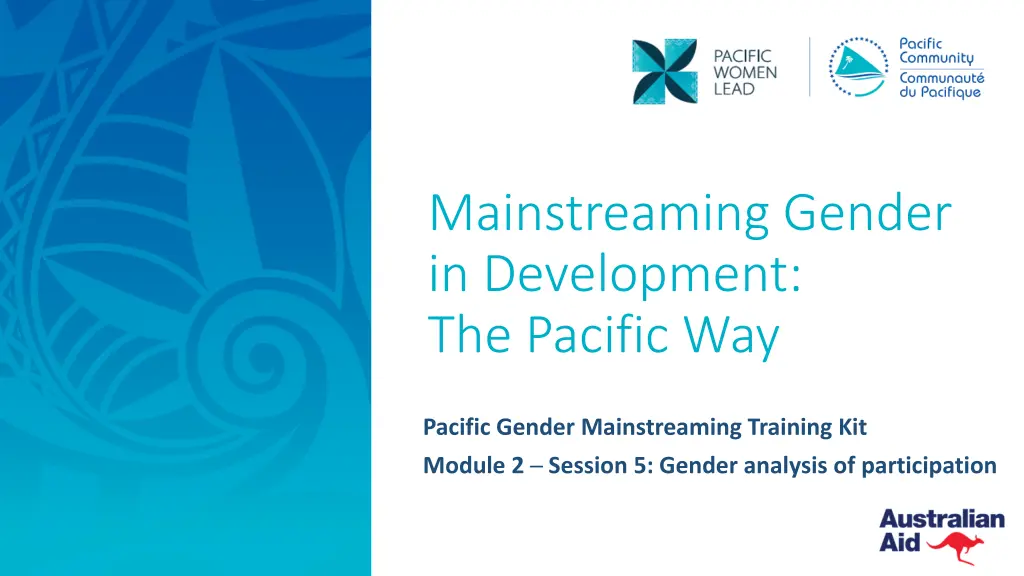
Gender Participation in Development Initiatives: Understanding Levels and Challenges
Explore the importance of women's participation in development, different levels of participation, obstacles faced, and what meaningful participation entails. Discover how women's capacity to engage in decision-making processes can be hindered, and evaluate the benefits of stakeholder involvement in development initiatives.
Download Presentation

Please find below an Image/Link to download the presentation.
The content on the website is provided AS IS for your information and personal use only. It may not be sold, licensed, or shared on other websites without obtaining consent from the author. If you encounter any issues during the download, it is possible that the publisher has removed the file from their server.
You are allowed to download the files provided on this website for personal or commercial use, subject to the condition that they are used lawfully. All files are the property of their respective owners.
The content on the website is provided AS IS for your information and personal use only. It may not be sold, licensed, or shared on other websites without obtaining consent from the author.
E N D
Presentation Transcript
Mainstreaming Gender in Development: The Pacific Way Pacific Gender Mainstreaming Training Kit Module 2 Session 5: Gender analysis of participation
Learning outcomes Learning outcomes At the end of this session you will understand: the importance of full participation in a development initiative the different levels of participation obstacles to participation.
The different levels of participation The different levels of participation
Participating in how decisions are made Participating in how decisions are made Women s capacity to participate can be challenged by: the division of work and social roles access to information capacity or right to express their needs and opinions level of self-confidence, and power relations.
Quality of participation Quality of participation Participation is not about the number of people attending but about the involvement of people in discussions and their capacity to be listened to and influence decisions. Who speaks? Who does not speak? Whose interests are being discussed? Whose interests are not being discussed?
What does meaningful participation look like? What does meaningful participation look like? when women have access to information when they express their views freely when their views are listened to and discussed when they ask questions without hesitation or fear when they can influence decisions that are being made when the decisions that are taken integrate their concerns, and when decisions addressing the stated concerns of women are implemented.
In your opinion, what prevents women from participating in a development programme?
Evaluation questions Evaluation questions 1. Explain the benefits for stakeholders of participating in a development initiative. 2. Give two indicators of someone participating at the highest level of participation in an initiative. 3. Describe three obstacles to people s participation in an initiative.
Evaluation questions Evaluation questions 1. The benefits for stakeholders of participating in a development initiative can be: a)They can contribute with their experience in finding solutions to a problem. b)They can make sure that people who are not attending the meeting will not receive benefits. c) They can influence decisions. d)They can learn something new and develop their own capacity further.
Evaluation questions Evaluation questions 2. What level of participation empowers people the most? a)When people say what they think. b)When people do as they are being told. c) When people make decisions and participate in governance of their local projects. d)When people can disagree with some components or the whole initiative.
Evaluation questions Evaluation questions 3. What obstacles are there to women s participation in a development initiative? a)They are too busy with the work at home. b)They may not be able to express their views due to social norms and protocols. c) They can be criticised. d)They may think they are not qualified.
